The Second Glimpse into the Nyota Community
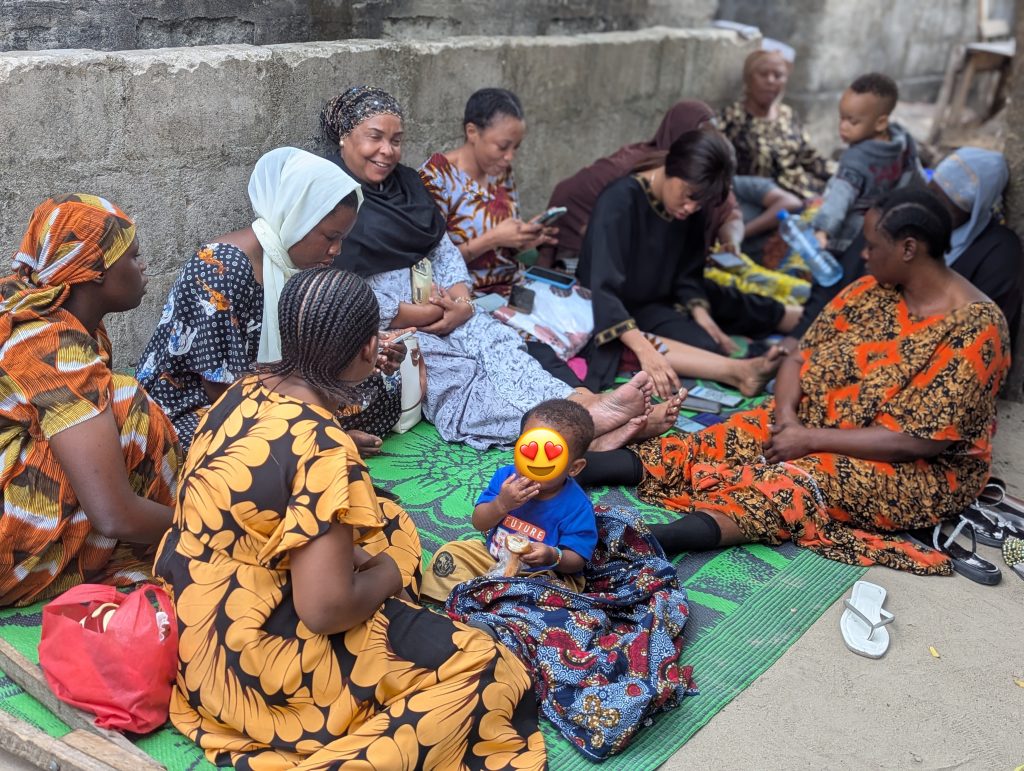
by Alinagwe Mwaselela, Nyota community lead While we are still in the process of preparing for the National General Election, in Mburahati Ward, Ubungo Dar Es Salaam, the Nyota community continues to benefit from the fruits of Encointer and Kusama in their economic and social life.An analysis of raw data from July to September this […]
A Glimpse into the Nyota Community
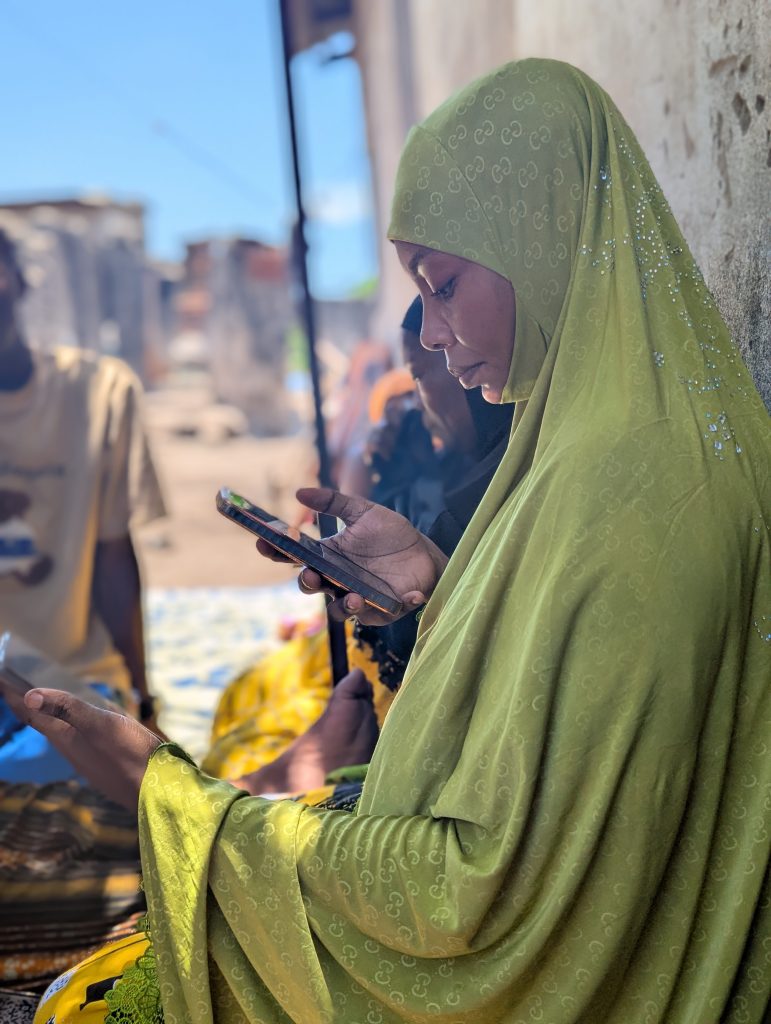
by Alinagwe Mwaselela, Nyota community lead In a year when national attention is focused on elections, something powerful is happening on the ground in Mburahati, a neighborhood of Dar-es-Salaam, the largest city in Tanzania. A quiet but remarkable transformation is happening, fueled not by political campaigns, but by community connection, creativity, and digital innovation. Read […]
Launching PayNuq: A New Economy Rooted in People, Cooperation and Local Value Creation

PayNuq, a local digital currency powered by Encointer, has officially launched in Zaria, Nigeria. PayNuq empowers the local community with a basic income and a self-sustaining economy. From solar-powered infrastructure to a smart community reserve model, PayNuq is setting the stage for decentralized, human-centered innovation in Africa. By Asyia Aminu from the PayNuq Community Team […]
Kusama Mchezo in Tanzania
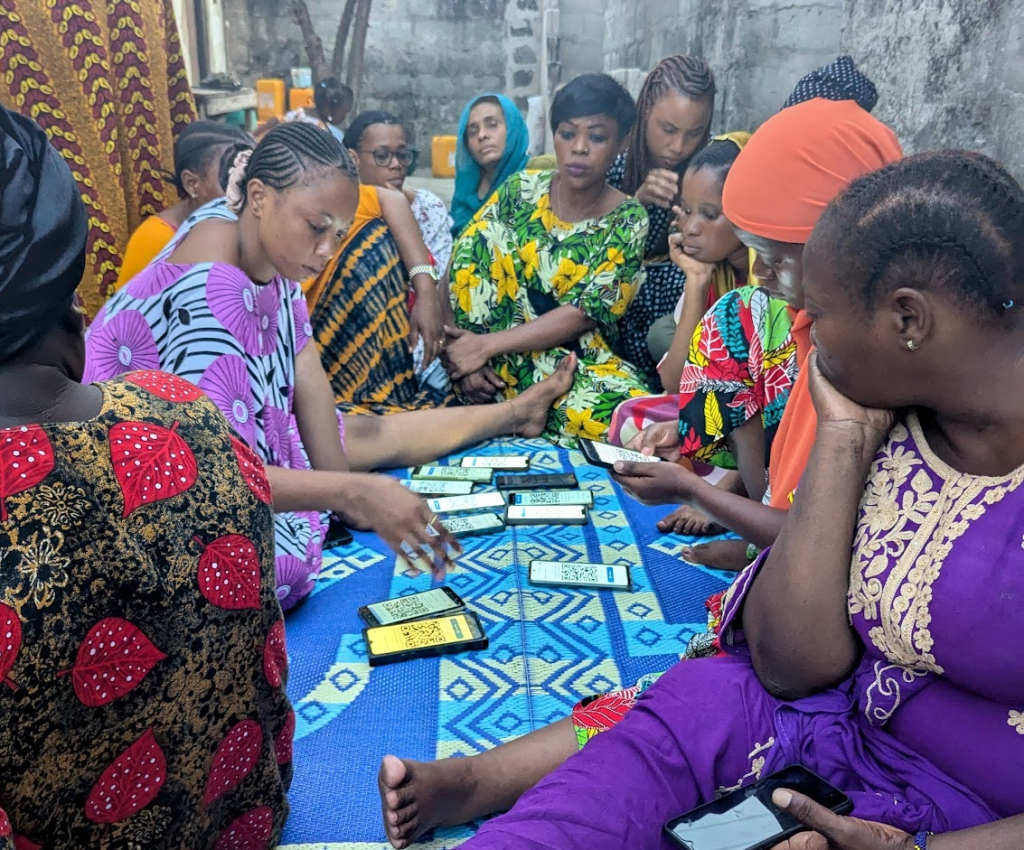
In Dar es Salaam, Tanzania, the Encointer community “Nyota” has developed its own ways of leveraging digital currencies. In this article, we present how Nyota has blended its cultural habits with the new possibilities offered by the Encointer and Kusama networks. It is a story of community empowerment and bureaucracy-free cash transfers and distribution. What […]
Independence Powered by the Sun: A Nigerian Community’s Journey into Blockchain and Self-Reliance
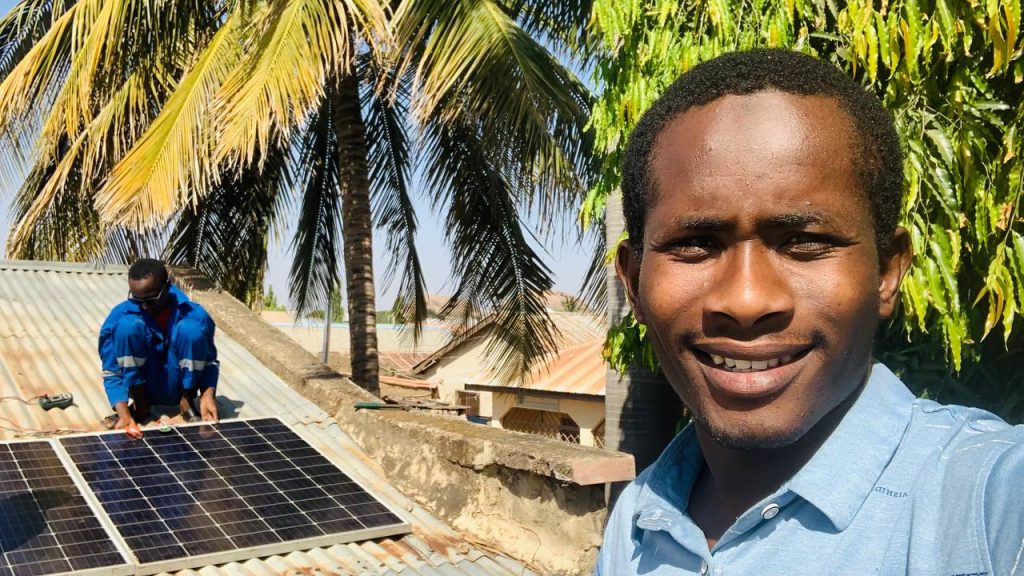
A new community in Zaria, Nigeria is preparing to launch their own community currency on Encointer Network. What makes this initiative stand out besides the currency itself, is the independent IT infrastructure they are building to support it. Their efforts benefit not only their community but also the global blockchain ecosystem, as they take strides […]
Fractional Reserve Community Currencies
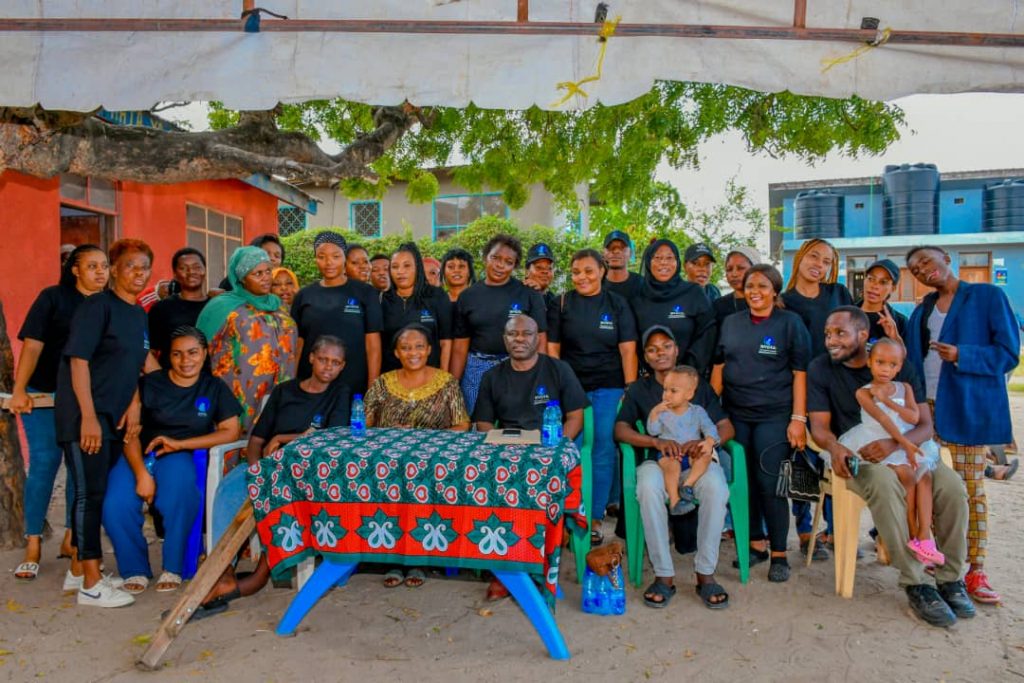
A New Instrument for Effective Development Aid In emerging economies, the lack of disposable income is a real obstacle to economic growth. Adding evenly distributed currency in a local setting can tackle this problem. Especially, if the supply and usage of said currency is governed democratically. The Encointer Association has tackled this opportunity in the […]
Grassroots Democracy for Local Communities
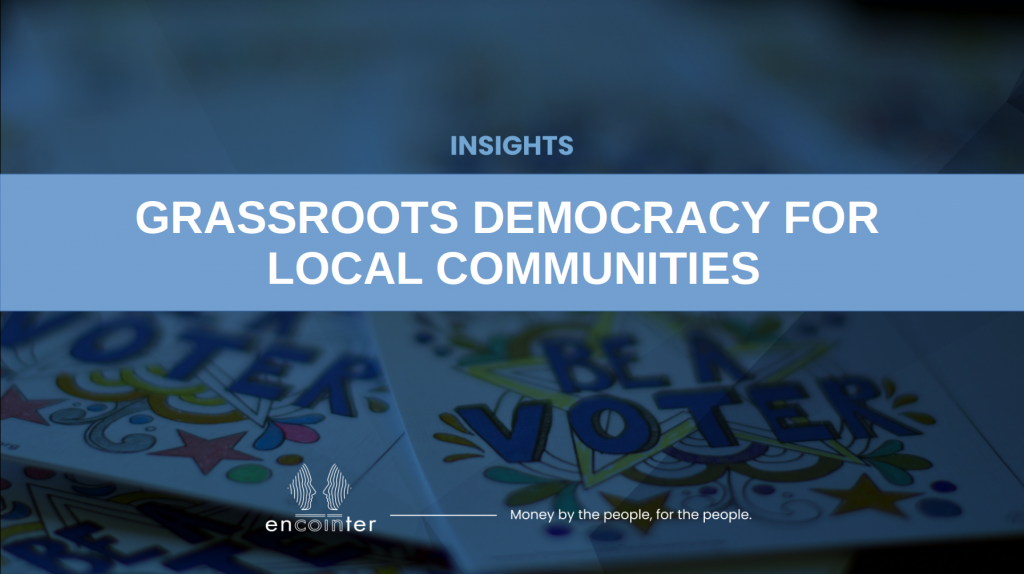
Encointer is a decentralized digital platform that empowers local communities to issue their own currencies and manage common funds. But who is actually in charge? Who can make changes to the configuration of monetary policy or the geographical boundaries of the community? In contrast to most other community currencies, Encointer operates without a central entity […]
Towards a global web of trust for Web3 voting
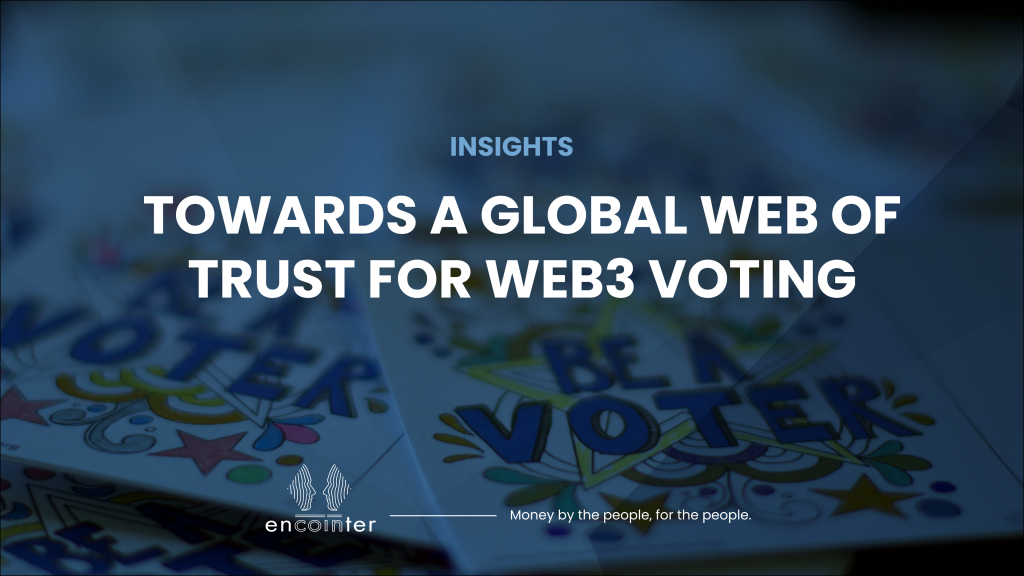
Democratic ballots based on one person, one vote are difficult to conduct in the Web3 space. Encointer can provide proof-of-personhood at local level, but how can that be extended globally?
Human or algorithm? How Encointer can support better AI transparency
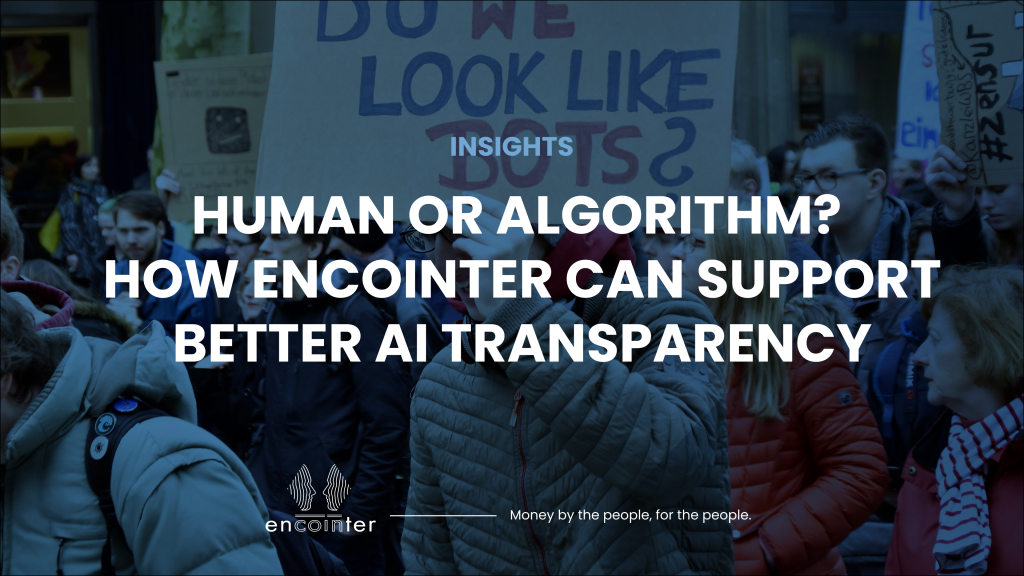
The proliferation of AI-based tools for creating visual and written content means we can no longer always trust that anything we see online has been generated by a human.
A Star for Dar es Salaam
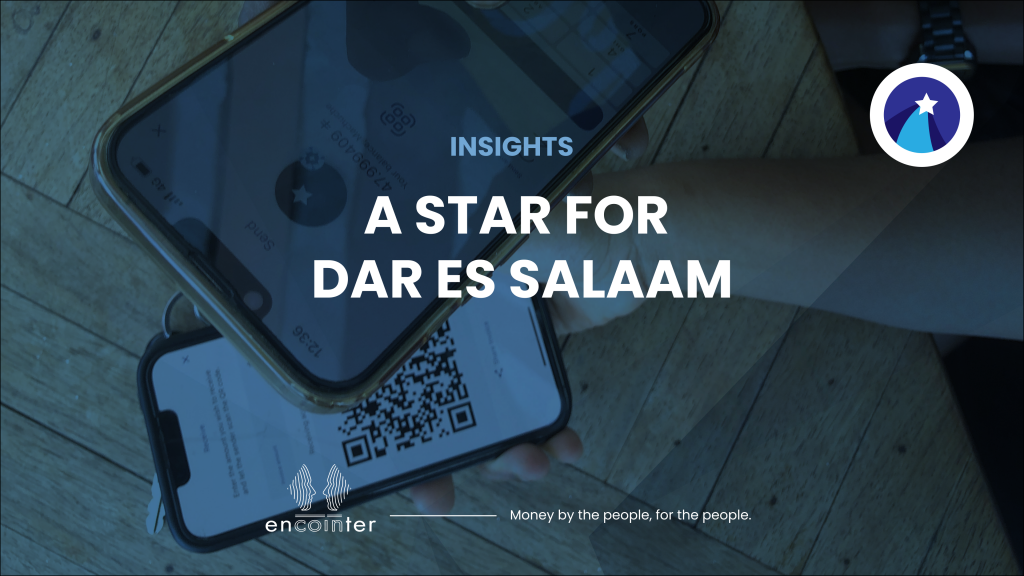
NYOTA (NYT), a community inclusion currency for Dar es Salaam, Tanzania, is planned to launch on the Encointer mainnet this September.
One human, one account — How Encointer can help tackle review and comment fraud
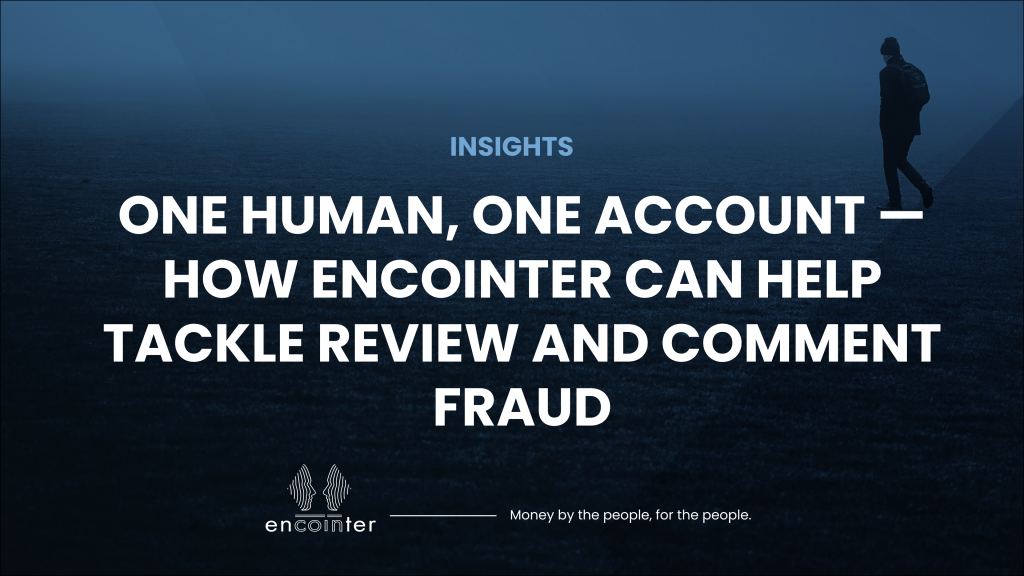
When trying to form an opinion about a product or service, we often find ourselves gazing at the stars on platforms like Amazon or TripAdvisor to help make up our minds.
Introducing BeeDance
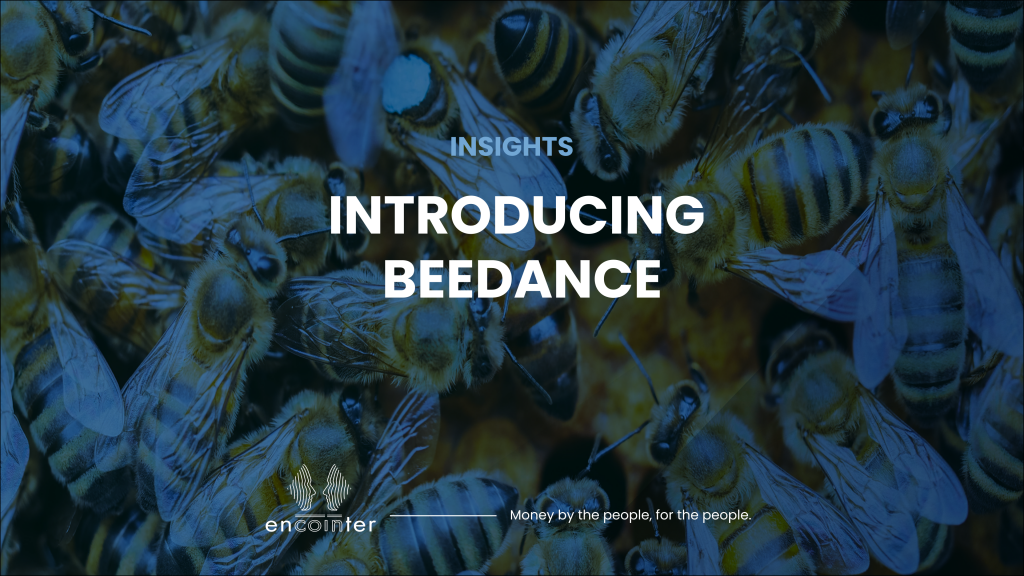
Encointer has made it possible for any community to create and distribute its own local currency. With its highly secure and decentralized Sybil-defense protocol, it lays the foundation for community-issued income.
The power of the purse: how women create stronger, more equal economies and how Encointer can help
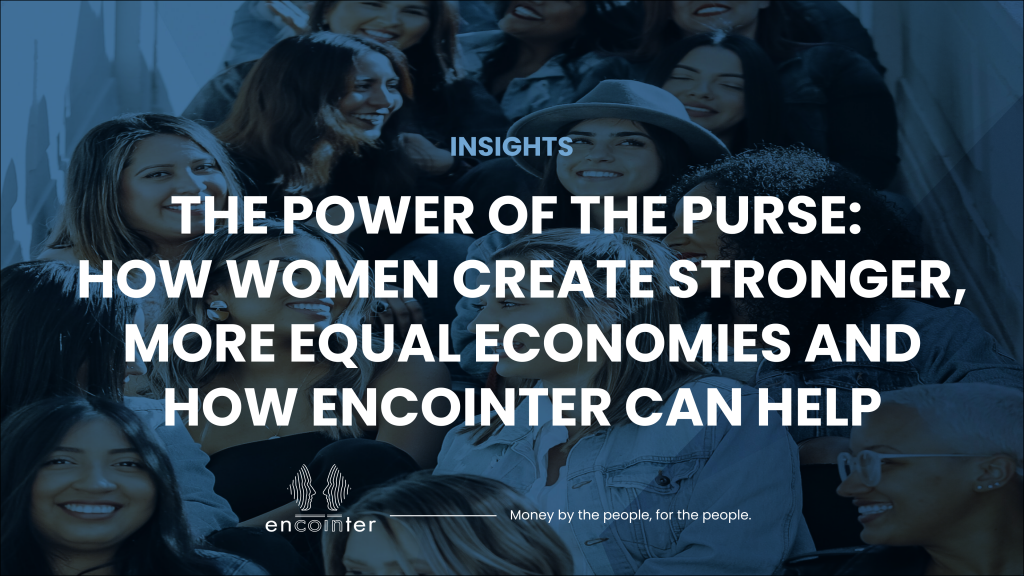
The research is clear — when women gain and maintain more control over their finances, it results in economies which are more resilient, diverse and equal.
Why some are more equal than others
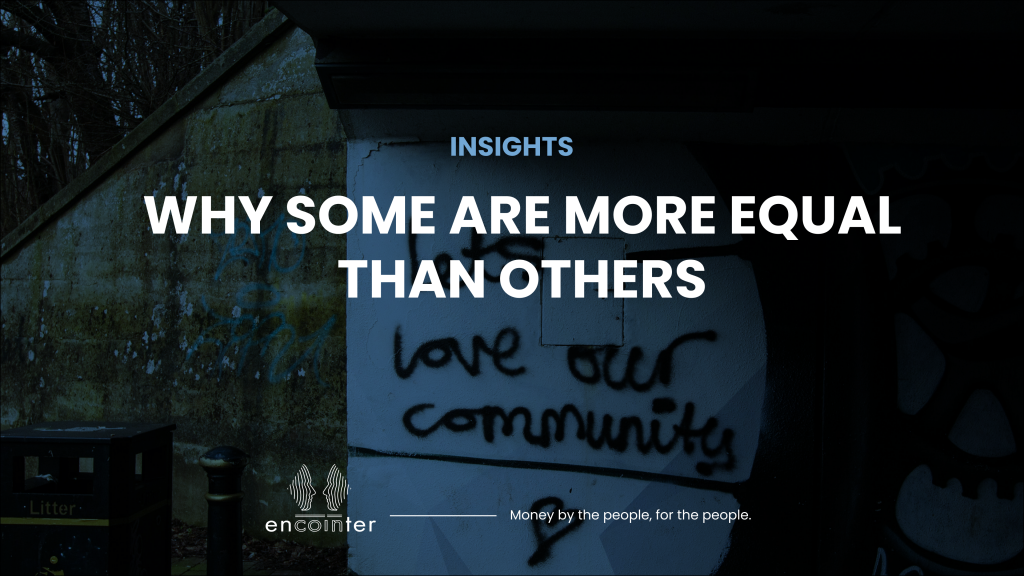
To understand inequality, you have to look at asset ownership – including intangibles such as education and job security. And to fight inequality, you have to think beyond redistribution.
Europe’s hidden inequality problem
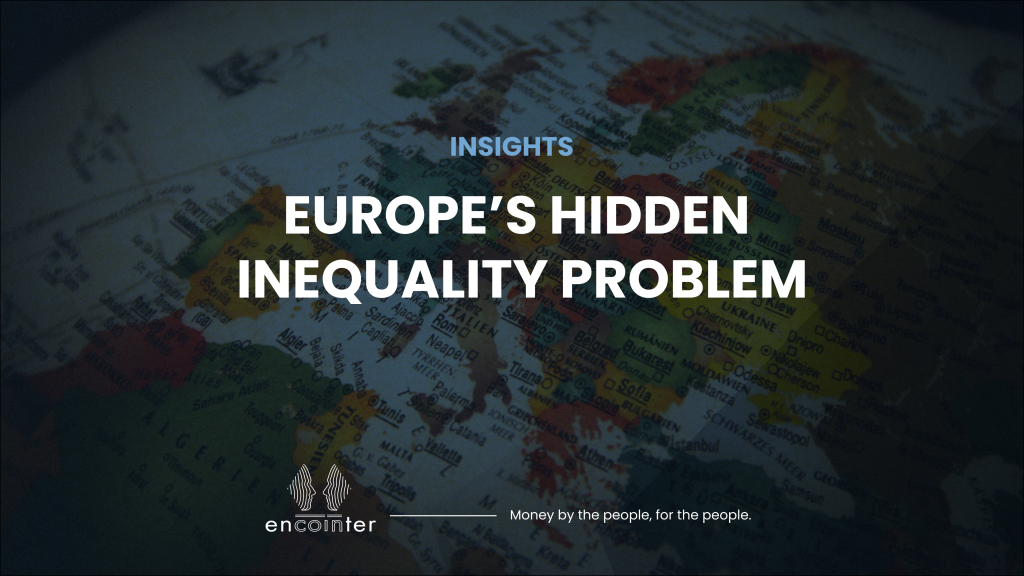
European countries are often assumed to provide a good standard of living for all citizens. But the real picture is more troubling.
Six ways Encointer’s digital community currencies can boost your business
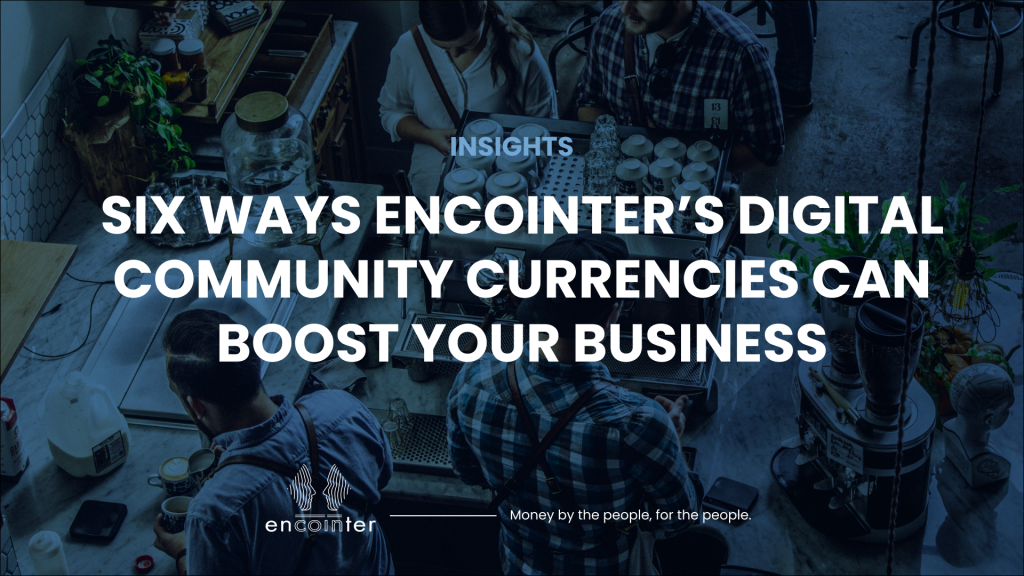
Our first year operating a common good parachain on Kusama has clearly demonstrated what Encointer can do, with our first currency growing steadily and more on the way.
From Wipkingen to Wisconsin: Here are the highlights of Encointer’s first year on Kusama
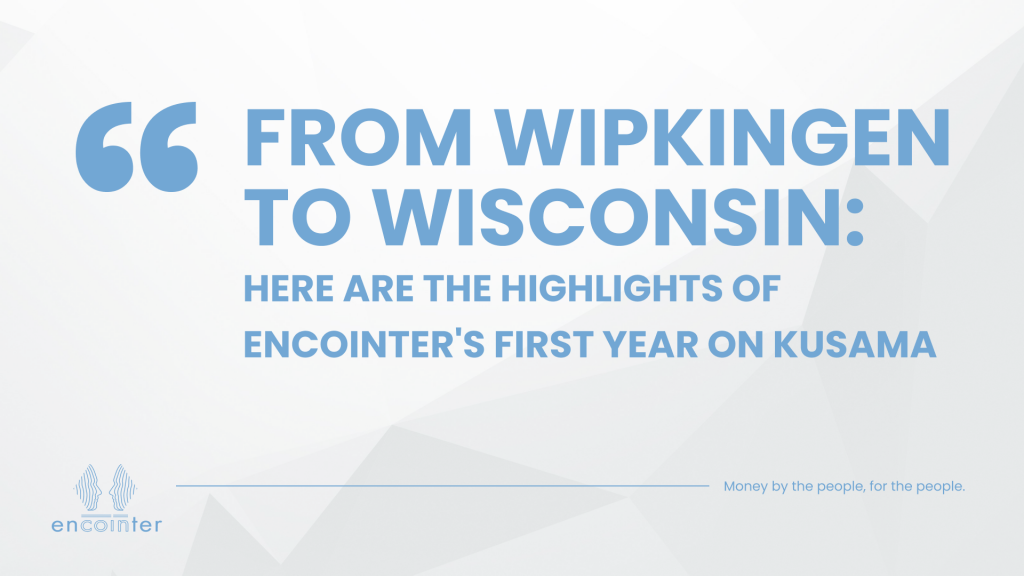
Our first year operating a common good parachain on Kusama has clearly demonstrated what Encointer can do, with our first currency growing steadily and more on the way.
Charting the development of Encointer’s longest established community currency
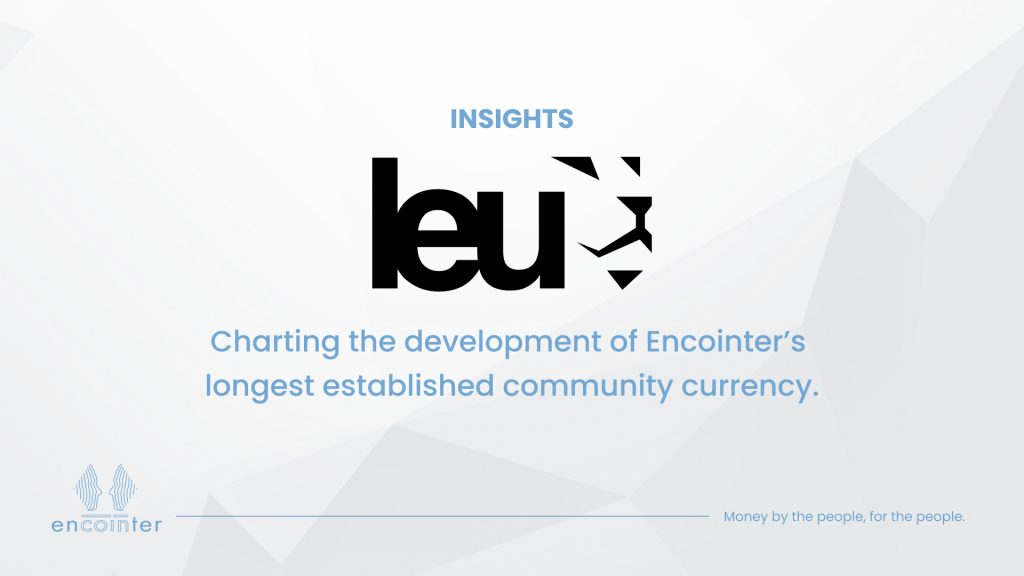
One of the big milestones of 2022 for Encointer was the launch of Leu Zurich, which became the first fully operational community currency based on our platform.
Truth or fiction? Busting myths surrounding digital local currencies
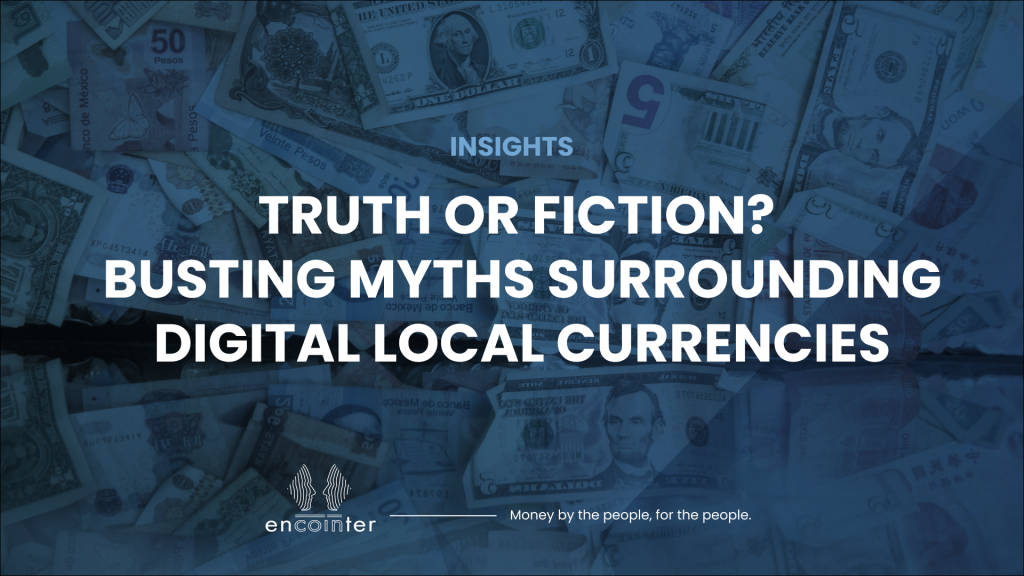
With two community currency launches under our belt in 2022 and more in the pipeline for 2023, the Encointer team spends a lot of time talking to local businesses about what’s involved in adopting a community currency.
How to spread the word about a new digital community currency
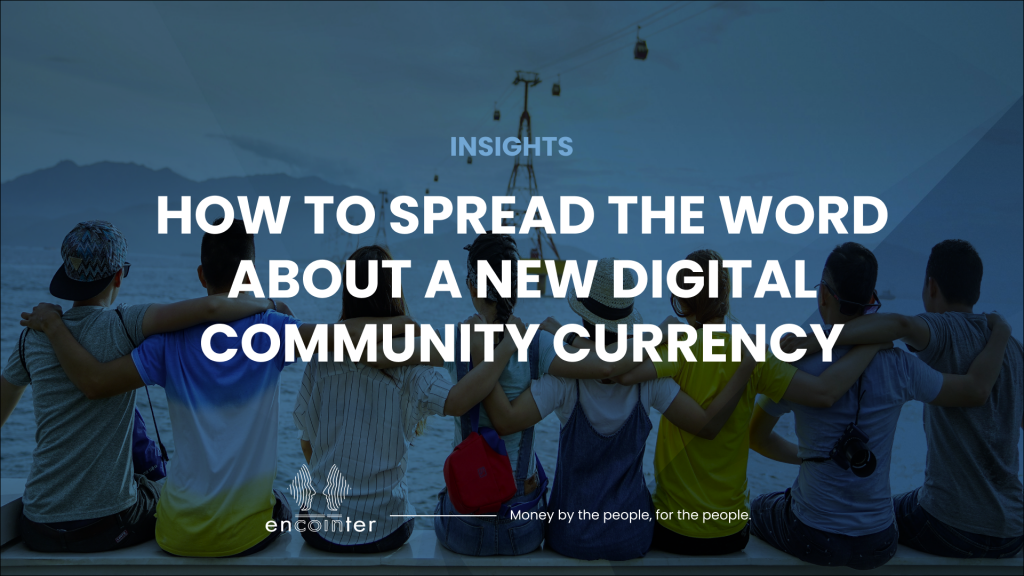
Encointer offers a framework to set up a reliable and secure digital community currency. But for any local currency to gain traction and become successful, getting the word out to potential users and other stakeholders is vital.
How Leu can help accelerate Zurich’s path to net zero
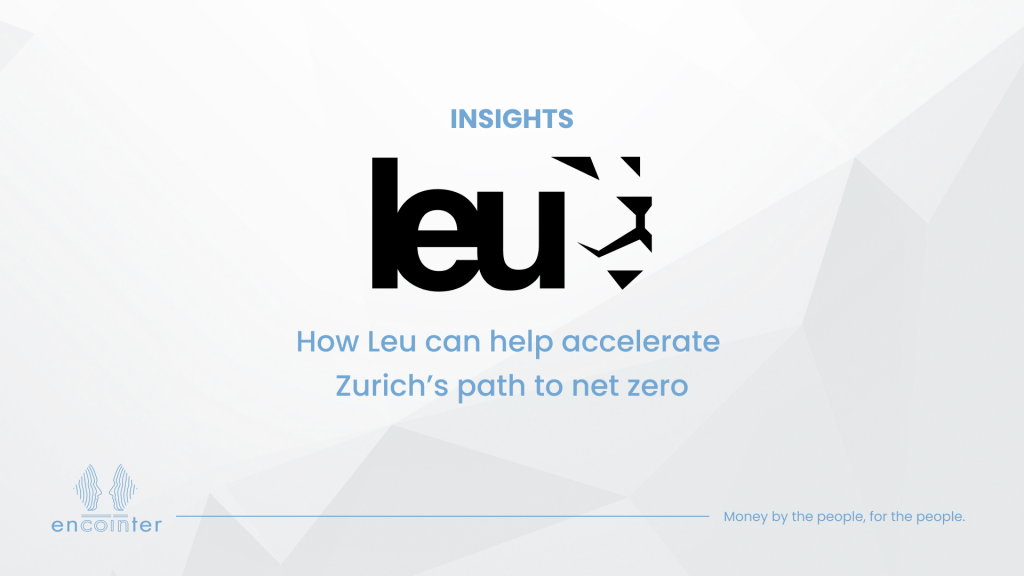
Our digital local currency is a great tool to promote sustainable economics. Here’s why.
Before you start…
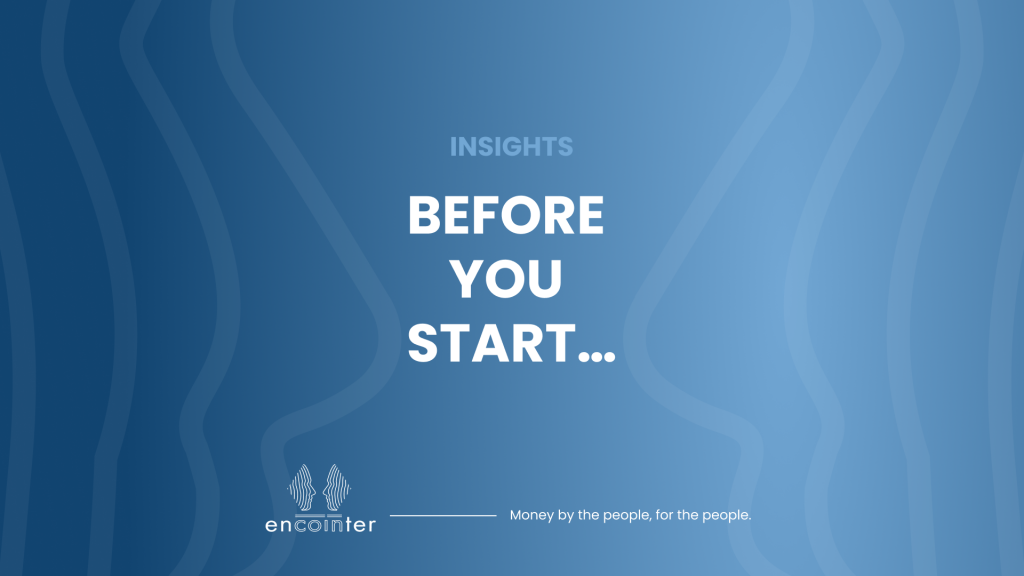
Ready to launch an Encointer currency? We make it easy with a ready-made platform that can be adapted easily to your local needs, but you still need to do some prep work. Here’s your to-do list.
Introducing the Aslah
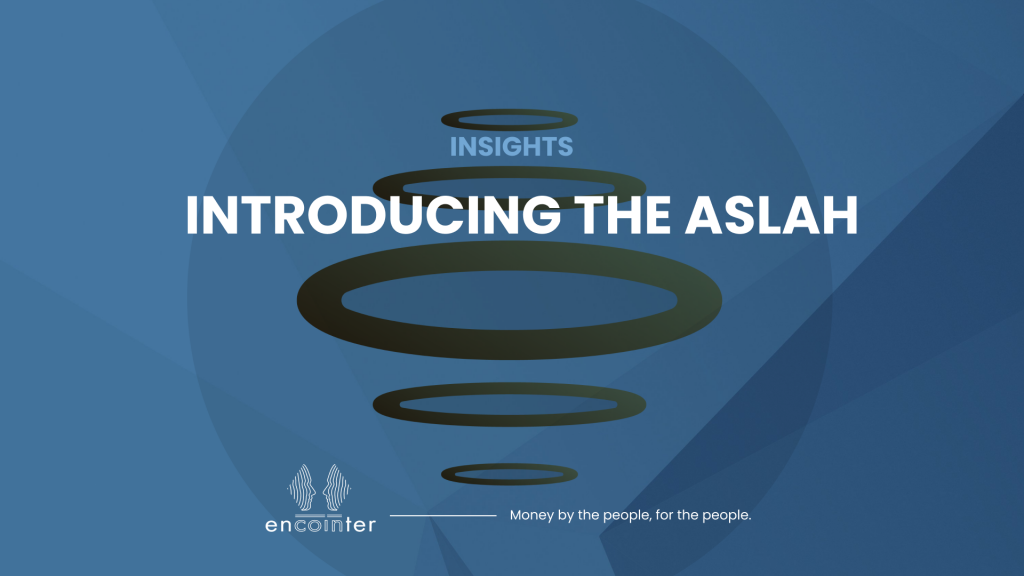
First Zurich, now the Rwandan capital: Encointer’s second community is bringing the concept to a very different economy – just as we wanted.
6 Reasons To Launch A Local Currency In Your Community
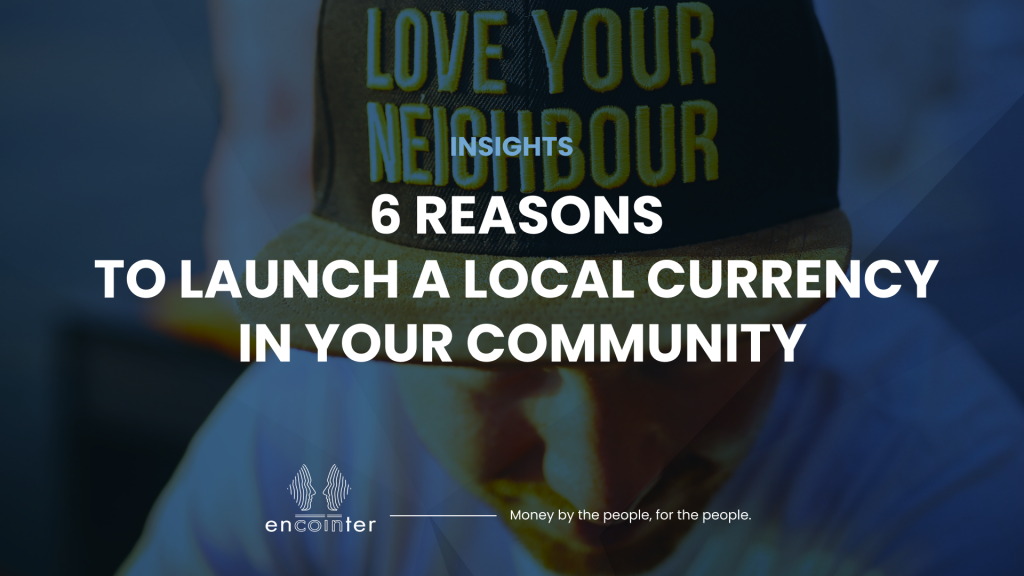
There’s so much upside and it’s easier than you think. Here’s why Encointer is a great way to boost your neighborhood.
There’s something weird about the idea of distributing your own local currency. Doesn’t that break all the rules of economics? Isn’t it super complicated? Can it actually help anyone? We have some answers: no, not at all, and absolutely! Let’s break it down.
Sybil Who? How Encointer Uses Real-world Trust To Prevent Fraud
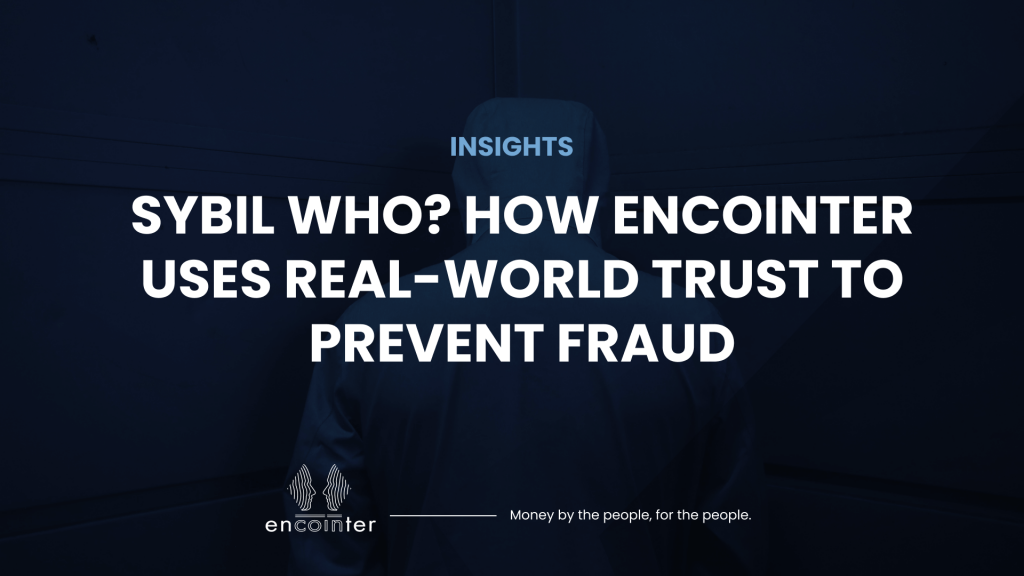
A Sybil attack describes a scenario where an attacker subverts a reputation-based system by creating multiple identities. Read on to discover how Encointer uses a real-world web of trust to create a Sybil-resistant system.
“Sybil” is the name of a 1973 book about the psychiatric treatment of a woman with dissociative identity disorder, which resulted in her manifesting many different personalities. Over recent decades, as peer-to-peer computing has become more commonplace, researchers adopted the term “Sybil attack” to describe a form of computing-based fraud where one entity creates many different identities as a way of gaining outsize influence over a network.
New Study Gauges Encointer’s Effect on Low-Income Communities
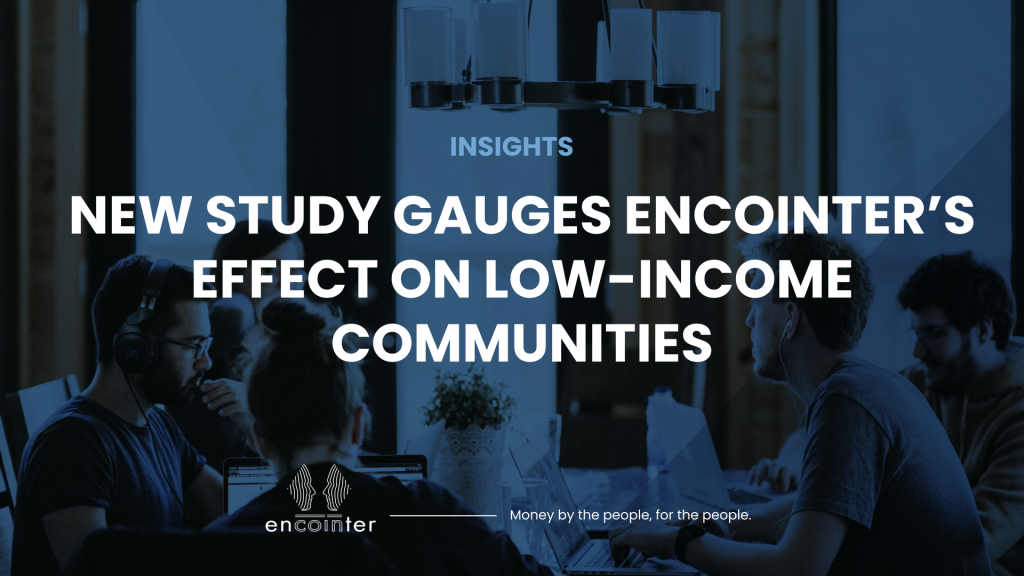
The Encointer protocol involves a number of interesting and sometimes countervailing design characteristics. But how might it play out in practice in a community of rational individuals in a low-income community?
How to Claim Your Encointer NFT From Polkadot Decoded
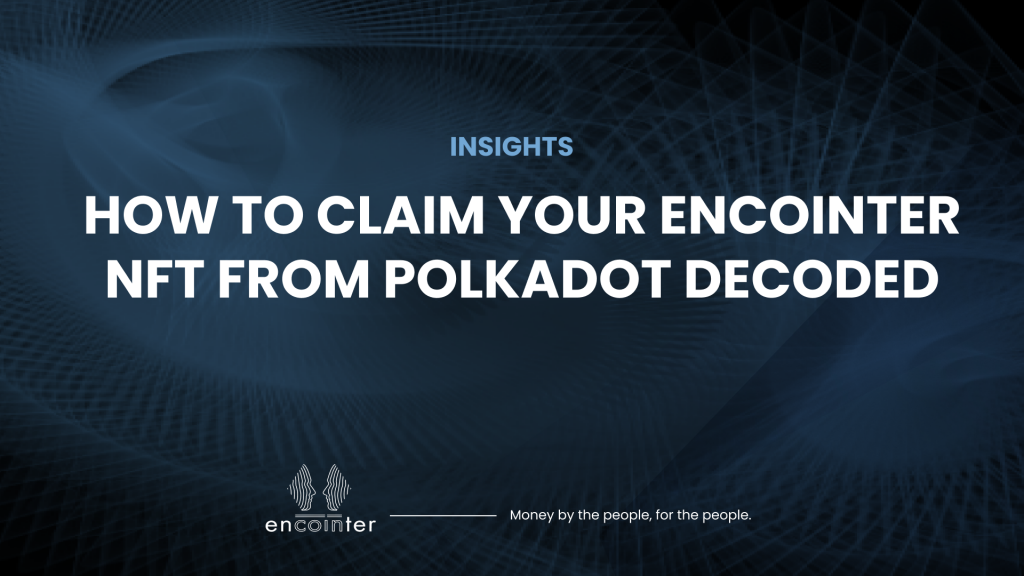
Did you participate in our demo at Polkadot Decoded 2022? Then read on to find out how to claim your exclusive commemorative NFT.
Forgotten History: How Local Currencies Helped to Bootstrap One of the World’s Biggest Economies
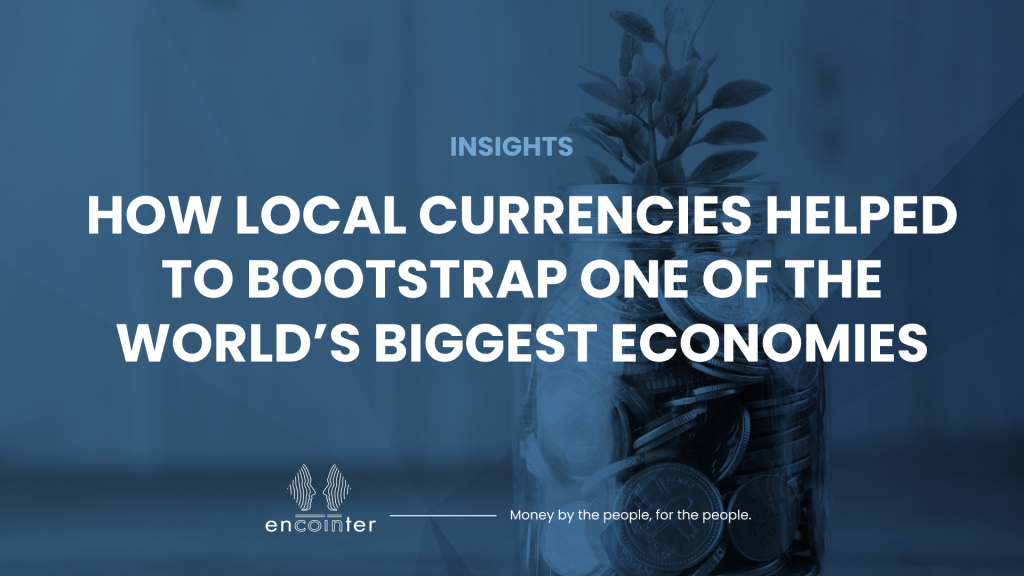
The US dollar has been the world’s reserve currency for as long as most of us can remember, since the signing of the Bretton Woods Agreement in 1944. But go back a little further, before the turn of the 20th century, and the dollar didn’t always reign supreme even on home turf. In fact, the mighty greenback emerged from a melange of smaller, locally-issued currencies that helped to bootstrap one of the world’s biggest and most diverse economies into existence.
How can we create digital local currencies that will stand the test of time?
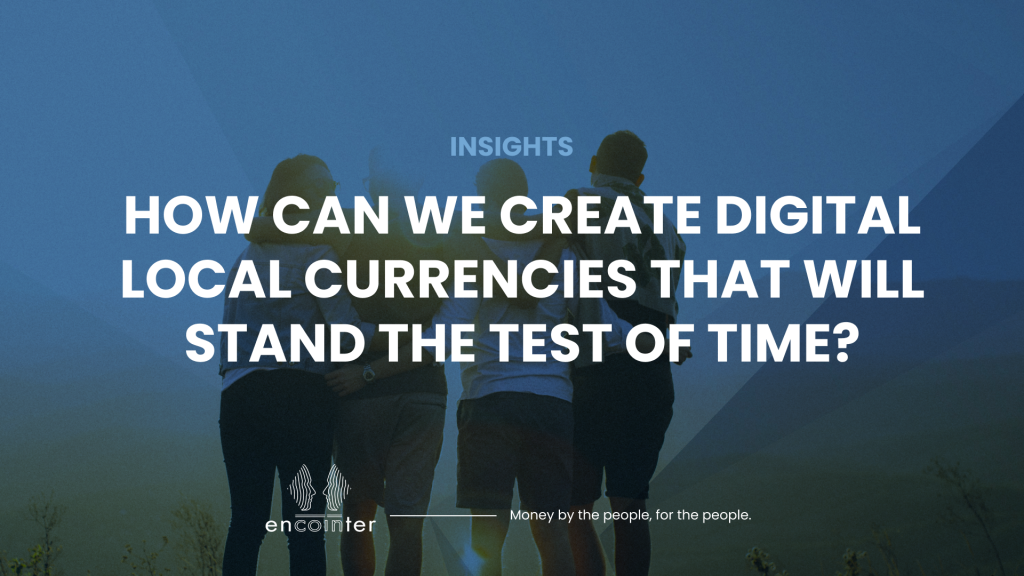
Cryptocurrencies and blockchain are often touted as solutions for supporting financial inclusion, while local currencies are already used to support economies at local level. Combined, they seem like an ideal solution. But to be sustainable, digital community currencies need to be more accessible and cost-effective than paper-based local currencies.
Local currencies evolved as a way to keep value circulating within a community. A network of local businesses and services agrees to accept the local currency as a replacement for cash. The idea is to create a micro-economy where less of the money spent leaks out thereby creating a local multiplier effect.
How grassroots initiatives can empower local communities in economic crisis
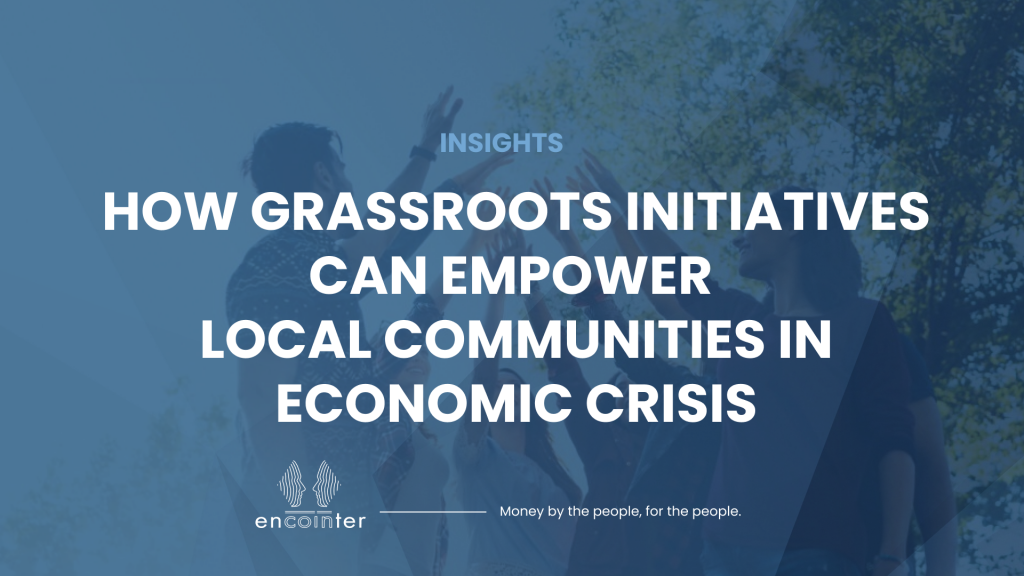
Macroeconomic challenges of the kind we face today can’t be solved at the local level, but there are tools and initiatives that can help empower communities to support the most vulnerable and keep value circulating locally.
The cost of living crisis is making for bleak news around the globe. The disruption to global supply chains and economic fallout of the pandemic, rising energy costs, and now, the prospect of a long war in Ukraine is causing food prices to spiral. Oxfam predicts that over 260 million people will be pushed into extreme poverty by the end of this year, surviving on $1.90 per day or less.
How local currencies support communities around the world
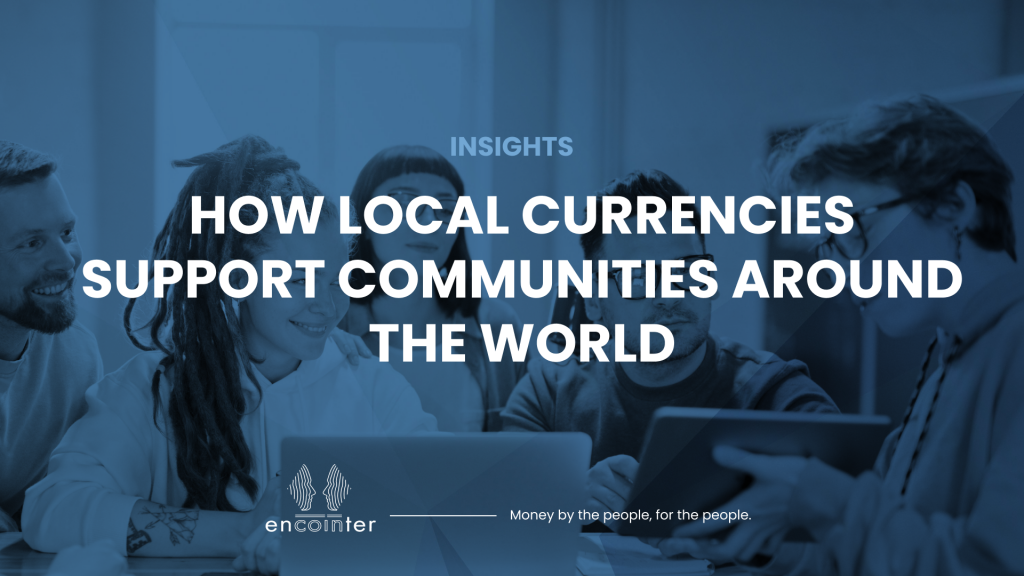
“Buy local” has become one of the mantras used to push back against the tidal wave of globalization that has characterized most of the last five decades. However, the complexity of global supply chains and the ubiquity of international brands can make it difficult for people to know how much of their spending is really being channelled back into local communities. Local currencies, used within local communities as an alternative to national currencies, have become an increasingly popular way to resist the swell of globalized consumerism and promote local spending.
Impressions from the Pre-Launch Community Zurich
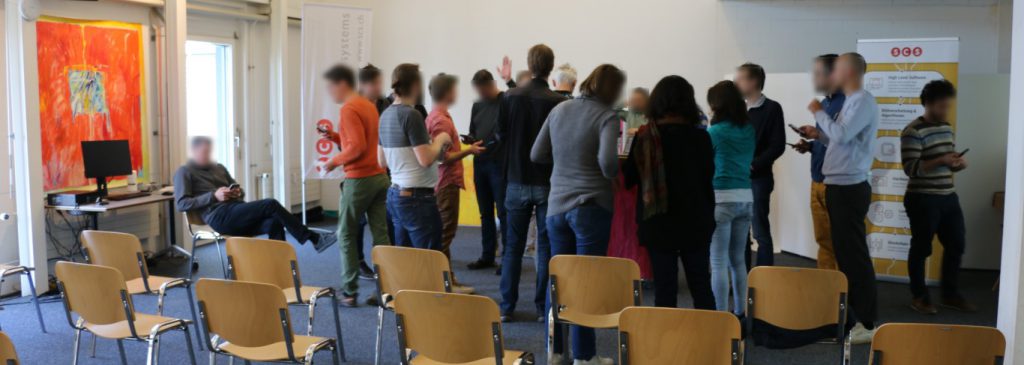
Before we start for real, it is worth getting real user feedback on the overall user experience of Encointer. This post will summarize our field test experiences so far. We chose Supercomputing Systems offices as a testing ground with over 100 potential testers and two well-frequented kitchens with consumables.
Research update

Quite a bit of research has been happening in the recent months. This post will summarize and comment on the findings. Economics A FHNW bachelor thesis about Encointer asking: “Can complementary local currencies with universal basic income reduce inequality?” has been authored by Shayma Lamsallak and was supervised by Prof. Mathias Binswanger. Shayma revisits the literature on […]
How Encointer Can Make Web3 Truly Inclusive
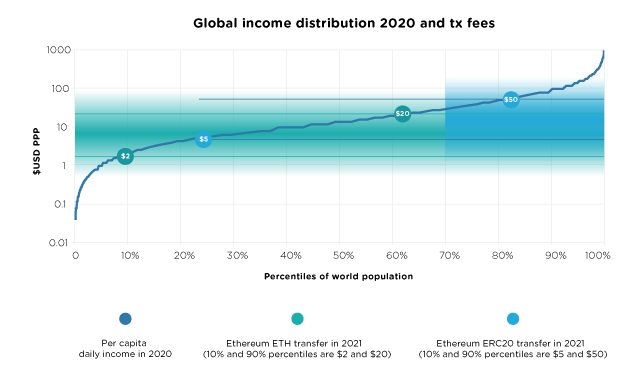
This article first appeared on the Polkadot blog The potential of Web3 extends well beyond reshaping finance in the developed world — it can also be used to foster greater financial inclusion in developing regions and new forms of democratic decision-making. But to allow for greater adoption, the fees to access Web3 services must be linked […]
Encointer About to Launch on Kusama and Bootstrap First Community

If you have been following the Encointer Project, you may have noticed that communications fell silent for a while. Unfortunately, as Encointer requires physical meetups with random people, the COVID-19 pandemic caused delays. However, we kept making progress nevertheless and now that restrictions have eased somewhat, we would like to share some big news with […]
Development Update
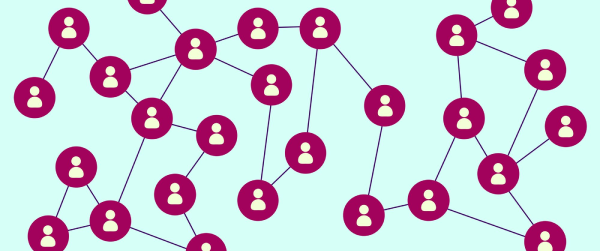
Encointer Testnet Gesell had suffered from a variety of little issues that were caused by an outdated dependency on substrate. Yesterday, Gesell has been restarted with its code based on substrate 2.0.0. Our new release 0.3.6 has been successfully tested with a community of 12’000 bot participants claiming an UBI and performing ceremony meetups at 1’000 locations. We do aim higher, […]
First Encointer Ceremony

On July 7th the first local currency was bootstrapped in Zurich by holding a key-signing meetup with our new mobile app (to be released soon)
Community Currencies NOW

Short intro to encointer and other community currencies projects duniter.org and grassrootseconomics.org, hosted by commonsstack.org https://www.youtube.com/watch?v=mVVKjyxZ0lE&t=1980s
Towards a Decentralized Global Universal Basic Income
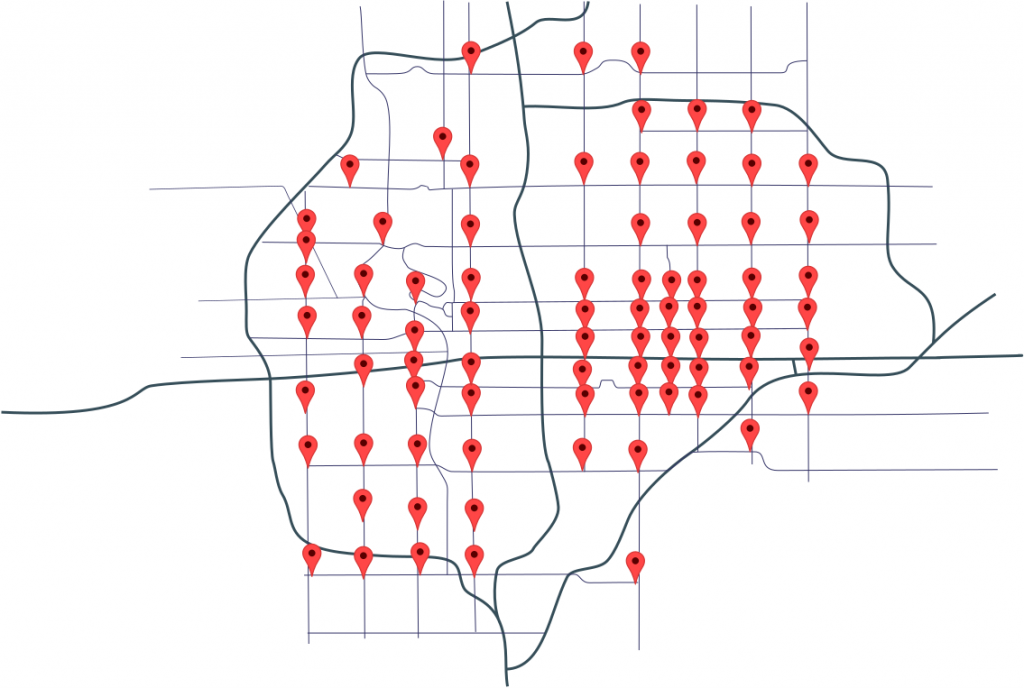
In this post I’d like to explain how local cryptocurrencies can make a global unconditional basic income happen and how Encointer solves the technical and economical challenges involved. Finally, I’ll give you a brief overview on what you can already do with our recently launched testnet Gesell today. A few years ago I was traveling in Western Africa. Strolling […]
Testnet Cantillon gets supported by web3 foundation

We are excited to announce the upcoming first Encointer testnet called “Cantillon”. It is named after Richard Cantillon, the economist who first described the effect of monetary expansion on inequality around the year 1730. For the development of this first testnet, Encointer got a grant from the web3 foundation. By mid-2020 this testnet shall go live […]
Talking about encointer at relaychain.fm podcast

Listen to Alain and Joe discussing the key concepts of encointer and its privacy solution SubstraTEE https://relaychain.fm/13-designing-universal-basic-income A few conceptual details have been reworked since this podcast has been recorded (see the newest version of the whitepaper) Meetup locations are predetermined for each local currency by the initiators of the currency. This way each community […]
Encointer as a development aid multiplier

Today, development aid gets diluted by administration, advertisement and corruption before it reaches its target, the individuals. Encointer provides a direct and egalitarian distribution channel from donors to individuals. Moreover, it potentially multiplies the economic impact of donations for the same reasons why fractional reserve banking works. Encointer aims to provide every human with a digital proof of personhood and a basic […]